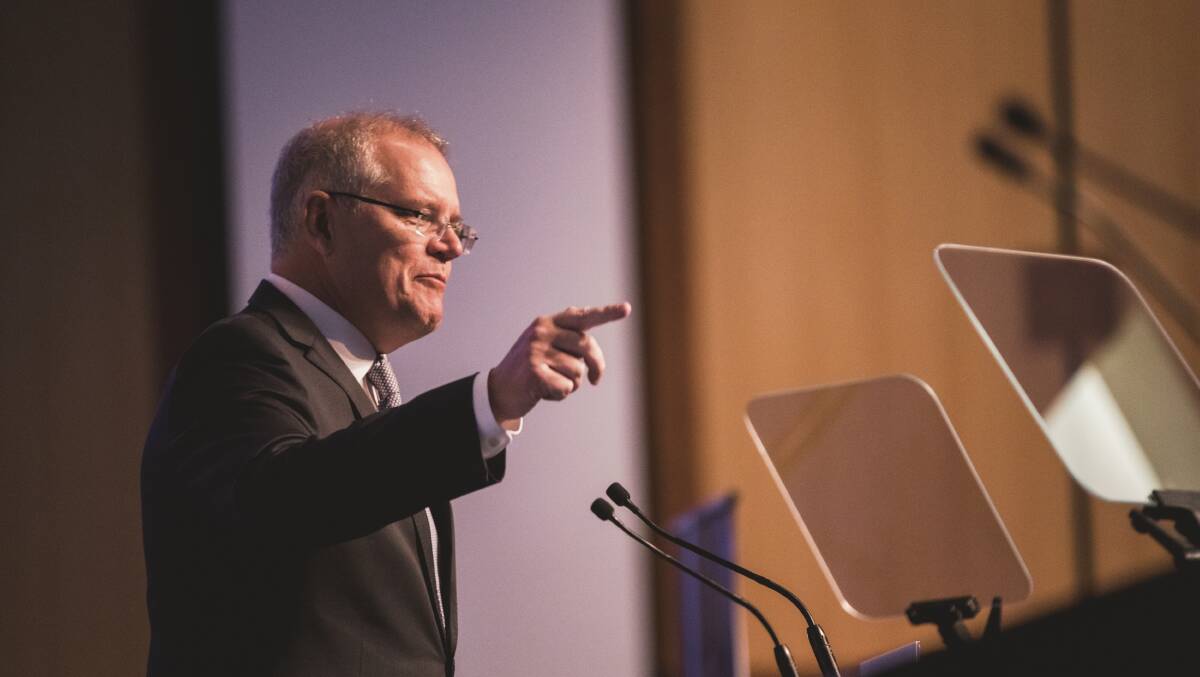The Coalition government will begin reforming the federal bureaucracy with a three-month sprint after it released findings of the independent review of the public service on Friday.
Subscribe now for unlimited access.
$0/
(min cost $0)
or signup to continue reading

Prime Minister Scott Morrison said the government would spend $15 million pursuing the early stages of the overhaul as he released the Coalition's response to the Thodey review's findings.
The government revealed the long-awaited review report a week after Mr Morrison cut the number of Commonwealth departments from 18 to 14, sacking five departmental heads.
It accepted more than 20 of the review's 40 recommendations only in part and rejected several others, including a move towards common pay and conditions for staff.
The government also rejected a recommendation to abolish the staffing level cap limiting public servant numbers in the bureaucracy.
Other reforms destined for the scrap heap are greater controls over disruptive machinery-of-government changes and rules for the dismissal of departmental secretaries.
The main legislation for the public service dating from the early Howard government will also stay the same, despite the Thodey review's call for changes.
However the Coalition is elevating the role of the secretaries board as the public service's main governing body and is telling it to drive much of the change, beginning with a three-month sprint to plan the reform agenda.
Reviews of agencies will return in 2021 and the performance of portfolios will have greater scrutiny from mid-next year, in line with a Thodey review recommendation.
The bureaucracy will embark on an "urgent" review of its IT and will later seek the government's agreement to a longer-term blueprint that would overhaul its technology.
The independent review, led by former Telstra boss David Thodey, found the Australian Public Service was "ill-prepared to grasp the opportunities of the future for several reasons".
"It lacks a clear unified purpose, and is too internally focused," it said.
"There has been long-running under-investment in the APS's people, capital and digital capability, while siloed approaches, rigid hierarchies and bureaucratic rules create barriers to effective delivery.
"APS leaders do not always act as a unified team. Most of all, the APS is not changing fast enough to meet government expectations and deliver for Australians in a changing world."
The Thodey report found the public service was not performing to its full potential and was not ready for problems that would arrive in 10 years.
Its panel called for a "dedicated and sustained" reform effort and warned that failure to change would strike at the heart of the purpose of the public service.
"It will not be easy to transform the APS and deliver these outcomes," the report said.
"The previous experience of APS reform shows that success will require deep commitment by the APS and its leaders as well as strong endorsement by the government.
"We suggest the government considers and adopts appropriate cabinet and ministerial oversight arrangements to ensure APS accountability for building a high-performing service."



